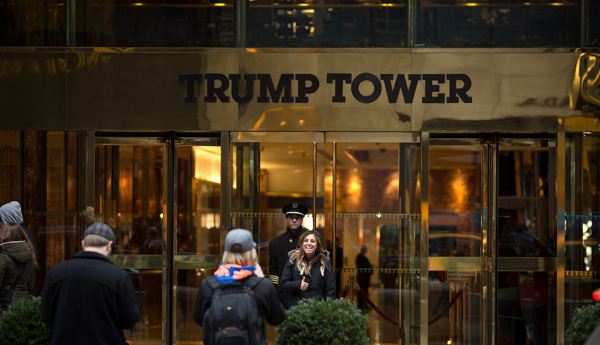Federal Appeals Court Delays Release Of Trump’s Tax Returns Amid Manhattan DA Investigation

The 2nd U.S. Circuit Court of Appeals in Manhattan on Tuesday agreed to delay the release of President Donald Trump’s tax returns.
Manhattan District Attorney Cyrus Vance Jr. issued a subpoena in September 2019 for eight years of Trump’s tax returns and financial documents from his longtime accounting firm, Mazars LLC, as part of an investigation into the president’s financial dealings.
The documents won't be revealed until at least Sept. 25, when the court will hear oral arguments from Trump’s legal team. Trump’s lawyers have previously argued that the release of the financial documents would cause irreparable harm for the president.
It’s unlikely that the tax returns would be released prior to the presidential election in early November.
The president’s legal team has claimed that Trump should be immune from criminal probes while in office. The Supreme Court rejected Trump’s claim of absolute immunity in a July ruling.
Vance is currently trying to determine whether Trump ordered alleged hush-money payments to women he had affairs with prior to the 2016 election. Recent court filings reveal that Vance is also investigating possible bank and insurance fraud by Trump and his business, the Trump Organization.
In addition, New York Attorney General Letitia James is investigating possible wrongdoing by the Trump Organization and has compelled the president’s son, Eric Trump, to testify. James’ probe is centered around whether the company falsely inflated its assets in statements to lenders and tax authorities.
Eric Trump has refused to testify in James’ investigation.
Without any basis, the NYAG has pledged to take my father down from the moment she ran for office. This is the highest level of prosecutorial misconduct - purposely dropped on the eve of the Republican Convention for political points. Sad that this is her focus as New York burns pic.twitter.com/5tgtS3vH3F
— Eric Trump (@EricTrump) August 24, 2020
“Without any basis, the NYAG [James] has pledged to take my father down from the moment she ran for office,” Eric Trump recently tweeted. “This is the highest level of prosecutorial misconduct - purposely dropped on the eve of the Republican Convention for political points. Sad that this is her focus as New York burns.”
Trump’s former attorney, Michael Cohen, told the House Oversight Committee in February 2019 that the president would lie about his wealth to achieve certain ends.
“It was my experience that Mr. Trump inflated his total assets when it served his purposes, such as trying to be listed among the wealthiest people in Forbes, and deflated his assets to reduce his real estate taxes," Cohen said during the hearing.
© Copyright IBTimes 2025. All rights reserved.





















